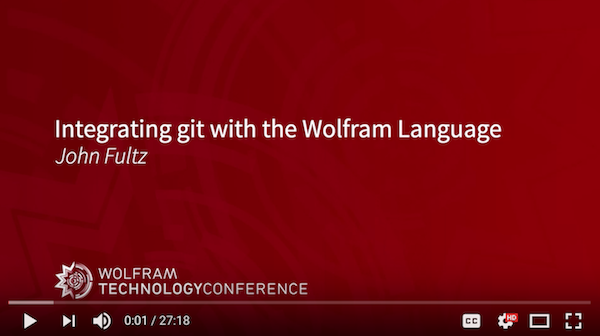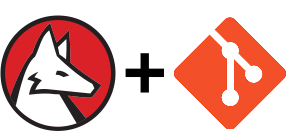Wolfram Research does a lot with open source. We use many open source packages, and we frequently make contributions to those packages and send them back to the communities that created them. But I've often wished that we did a little more with creating our own open source software.
So, it's time for me to put up or shut up and open source a major project I've been working on for WRI. If you've been to the last two Wolfram Technology conferences [YouTube],

you know that I've been working on a connection technology from the Wolfram Language to git which I've been calling GitLink. Well, GitLink is now open source and you can get it on Github.
Why do this, and why do I care? For one, Wolfram Language is a real development system used by folks all over the world, but sometimes those folks lack the benefit of good examples to work from. There are tons of examples in the documentation of short-form code, but not as much as I would like for how long-form coding in the Wolfram Language should be done. GitLink provides some interesting examples of this which others might follow (and I've already gotten feedback on this!). Things like how to write a particular kind of LibraryLink package robustly. Or how to do some currently-under-documented things like extending the autocompletion mechanisms or building paclets. Or even more basic things like how to structure code, and how to use the notebook front end's package editor to do nontrivial package development. And if you look closely, you'll even see some ideas I'm still developing for writing unit tests which might show up in a future version.
For another, GitLink is slated to be a first-class feature of the Wolfram Language, but it's not quite ready yet. The things that work are pretty robust, but there's enough unimplemented functionality (like missing authentication methods, diffing functionality, config functionality) that it still won't make it into the Wolfram Language officially for a bit. But I'd love for people to see it. And I'd like to hear your inputs. You might have some interesting ideas I haven't thought of. You might even have the wherewithal to implement them, which I certainly won't turn down.
Finally, I'm hoping to start a trend. I don't think it's viable to see all of Mathematica become open source. Wolfram pays me for my services, and I'd like for the company to continue to be able to do that. But companies are finding ways these days to contribute intellectual property to the public good and still remain viable. I see a lot of code at Wolfram that I think our community would find very instructive or useful to have access to, and which really wouldn't hurt us at all by releasing. So, I'm going to work with other development groups through the company and see if the release of GitLink can be a pattern for more open source releases in the future...both of things which are in development and things which have been shipping for a while.
But for now, GitLink is a thing. Go check it out.
